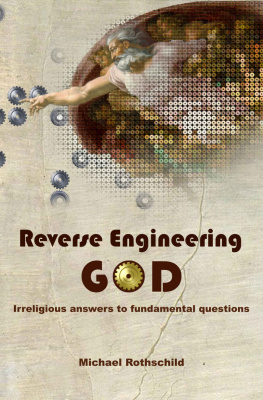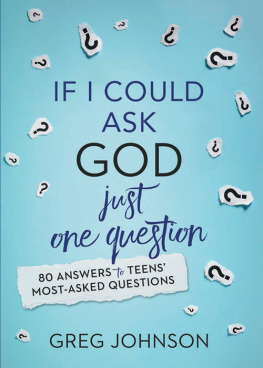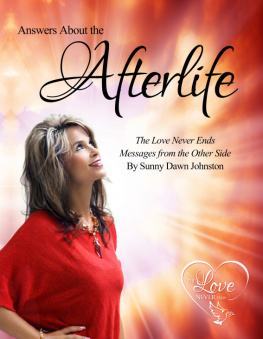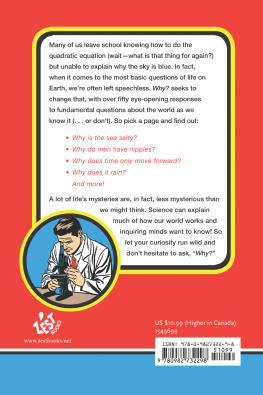No part of this book may be reproduced, copied, photocopied, recorded, translated, stored in a database, or transmitted in any manner or by any means, whether electronic, optical or mechanical (including photocopy, recording, Internet and e-mail). Commercial use of any kind of the content of this book is strictly prohibited without an authorization detailed in writing by the author.
To my creators, Shoshana and Gideon Rothschild, and to my savior, Dr . Shabtai Versano
Introduction
At age 17, one of my friends became religious . Many years later , when I asked why he did it , he said he wanted to get answers to questions like " What is my function on this planet ?" " What is morality ?" " How did life on Earth start ?" " How was man created ?" " Do I have free will ?"
Pondering his answer , I realized that the education system in which he studied , like almost all secular education systems , not only failed to answer these questions , but completely ignored their existence and importance . Only religious education addressed his questions . This understanding motivated me to write a blog , with two objectives in mind : to put together a collection of humanist , atheist , and logical answers to questions that people tend to turn to religion to have answered ; and to strengthen people ' s faith in the power of scientific and rational thinking . My aim was to increase people s ability to distinguish between truth and falsehood , and consequently to discern the benefit of answers based on logic over those based on belief .
Most of the questions that the blog sought to answer have received several answers over the years . I included in the blog only those that seemed to me correct . Some were my own answers . The blog was originally written in Hebrew , against the background of Israeli reality . As the material accumulated , I decided that it would make sense to translate into English the content that is universal in nature and distribute it as a book .
The result is the book you are now reading .
Organization of the book
In accordance with its two aims , the main content of the book is divided into two parts . The first part may be reminiscent of Kipling ' s Just So Stories , because it contains a collection of answers to separate loosely connected questions . The common denominator that holds the chapters together is the fact that they are sufficiently important for humans to have invented God to answer them , or that they concern fundamental issues that have preoccupied scientists and philosophers from time immemorial . Much of the first part is devoted to thoughts on evolutionary theory , not out of any preference for this field of knowledge over others . It stems from the fact that many of the questions we ask ourselves concern our very humanity , and the answers are based on processes that have led to this humanity . These processes are mostly evolutionary . In this sense , it may be said that in this book evolution plays to a large extent the roles that religions have ascribed to God .
The second part seeks to reinforce the readers tendency toward using logical and critical thinking , mainly by presenting solutions to paradoxes . It does so to illustrate the fact that reality does not tolerate contradictions , and that the proper way of dealing with apparent contradictions is to identify the errors that led to them , and not to adopt them and deal with the cognitive dissonance later .
The table of contents classifies the stories into chapters by topic and allows a systematic perusal of all of them . Each chapter also contains an explanation of the logic behind the grouping of stories within one chapter .
Links
You will find two types of links in the book :
Internal links by which it is possible to go from the table of contents to the various chapters and stories , or from one chapter or story to another , as needed .
External links to network resources that are outside the book .
You can distinguish the two types of links by the fact that internal links reference the name of the story and its number . You can read the book without following the links , but you may occasionally use a link to broaden the picture or find a reference . You can find all the external links in the file https :// bit . ly /2 Itz 0 WR , which has been created for the readers of the paper edition , but online readers may want to use it as well whenever a link in the book is broken . In the Kindle edition , when reading without a network connection , only the internal links will work .
Part 1: Just so Stories
Chapter 1.
Soul, Mind , Will, and Self (Are) Matter
The philosophical difficulty encountered when trying to describe the relationship between mind and body (the mind-body problem) stems from the apparent incompatibility between the subjective feelings and desires of the mind and the objective processes of the physical world. Several theories have been formulated to explain how physical events affect feelings in the mind and how desires of the mind affect the physical world. The various theories can be categorized according to the assumption they make about the relation between mind and body. These include:
1. Dualism : mind and body are two different things . Feelings ( qualia ), thoughts , and decisions take place in the mind , and the brain is just a mediator between the mind and the physical world .
2. Physicalism : the mind is just a particular organization of matter in the brain .
3. Idealism : only the mind really exists , and matter is an illusion .
4. Neutral monism : both mind and matter are the expression of a third substance .
My approach is that of physicalism . In the following three stories about lost souls , free will , and qualia , I show that this is the only approach that is consistent with the findings of scientific research and with logic .
Some thinkers who embrace physicalism infer that the sensation of self is an illusion . In the story about the self I examine their arguments and explain why this sensation represents a real thing .
1.1 Lost souls
Many religions and traditions speak of the survival of the soul and its reincarnation. Does the soul really survive and migrate?
Mediums of various types claim that they can establish connections with the souls of the dead, and charge money for advice and information about close and distant relatives who had passed on. Do the mediums truly provide the service they purport to deliver? Is there any basis for the assumption underlying these claims, according to which the soul has a separate existence from that of the body?
Many people believe in reincarnation and in other phenomena that rely on a separate existence of the soul . But even those who do not believe in the reality of these phenomena , generally say that their lack of faith stems simply from skepticism and the fact that no one has ever shown them something that would convince them of the truth of these claims . Few people point out that all these claims contradict information already in their possession .
To address the question of the separate existence of the soul from the body in earnest , we must define what it is that we call soul , or at least specify several of its attributes . Let ' s consider what these attributes might be .
Memory . Most people agree with the argument that the soul should have a memory . Subjectively , memory is the only thing that links who I was yesterday with who I am today . Introspection should lead each person to conclude that it is the memory that accounts for his subjective sense of continuity . It is not surprising , therefore , that most of the apparent testimonies of reincarnation or communication with souls beyond the grave are based on the soul remembering something from the period when it resided in the body of a human known to us . This memory may be a foreign language that the person currently inhabited by the soul knows although he has never heard it , the location of an object that the medium reveals after communicating with the dead , which is not known to any of the people present , or some event that none but the deceased could have known in precise detail .








